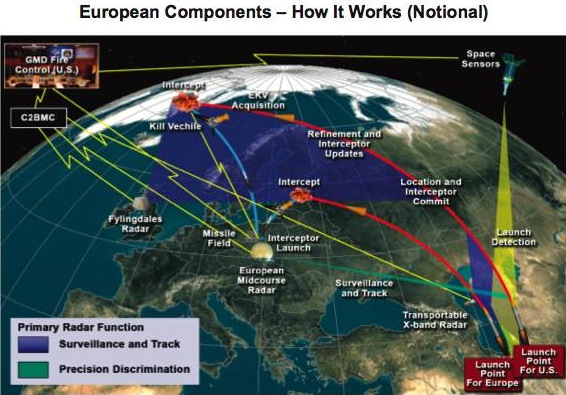Spain will host US ships for missile defense plan
October 5, 2011
Associated Press
October 5, 2011
The Obama administration has agreed to base Aegis Cruisers on Spain’s coast, as part of the anti-ballistic missile defense system to protect Europe against a potential Iranian nuclear threat, U.S. defense officials said Wednesday.
Officials said the plan will make it easier to maintain a continuous naval presence in the Mediterranean Sea, and also provide security in the eastern Atlantic. The move comes just seven months after the Pentagon sent the USS Monterey, a special radar-equipped warship, to the Mediterranean, marking the first of the administration’s four-phase plan to put land- and sea-based radars and interceptors in several European locations over the next decade.
The plan was described by U.S. defense officials on condition of anonymity because it has not been made public. Officials expect to make the announcement later Wednesday at the NATO defense ministers’ meeting.
U.S. and Spanish officials agreed to base the ships at Naval Station Rota, on Spain’s Mediterranean coast.
Developed to protect Europe from a potential Iranian nuclear threat in 2009, the broad missile defense shield was approved by NATO last November.
Under the arrangement, a limited system of U.S. anti-missile interceptors and radars already planned for Europe _ to include interceptors in Romania and Poland and radar in Turkey _ would be linked to expanded European-owned missile defenses. That would create a broad system that protects every NATO country against medium-range missile attack.
NATO says the cost of the system would be relatively cheap when spread across the entire 28-nation alliance _ euro200 million euros, or about $260 million, over 10 years. But critics contend that’s still a big pricetag for Europe, suffering from a debt crisis that has forced governments to raise taxes, cut services and slash civil servant salaries.
The plan has drawn opposition from Russia, which worries the system could target Russian warheads or undermine their deterrence strategy. Moscow is demanding to jointly run the system, while NATO is offering more limited cooperation between the Russian and Western anti-missile systems.
